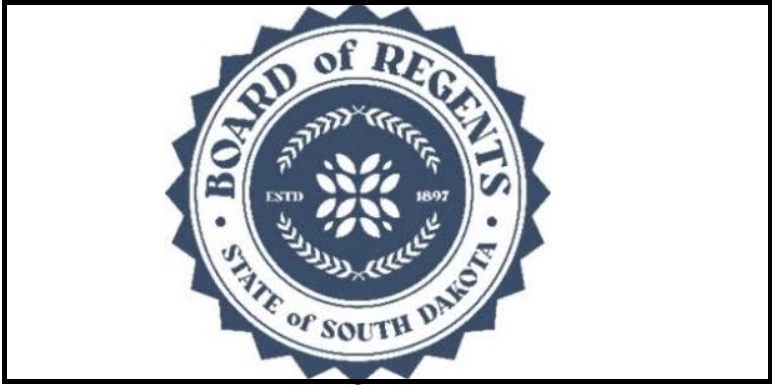PIERRE, S.D. – South Dakota Gov. Kristi Noem, her family, friends and guests are the only people who can stay in a state-owned historic cabin in Custer State Park, and it’s unclear if the rustic Valhalla retreat is being used for political purposes.
Citing open records law, Noem’s administration won’t reveal who stayed there over the past three years or whether the state is reimbursed, despite more than $120,000 in taxpayer money being spent on property upgrades.
Noem, who was re-elected in November to a second four-year term, is on the short list of potential 2024 Republican presidential candidates and spent much of the past week giving policy speeches in Washington D.C.
State Sen. Reynold Nesiba, D-Sioux Falls, spearheaded a voter-passed ballot measure in 2006 mandating that state-owned aircraft could only be used for state business. He has similar reservations about the governor’s personal use of Valhalla.
“It’s inappropriate for the executive branch to have a private retreat for the governor and her staff,” said Nesiba. “Nobody wants elected officials getting personal or political benefits from their elected office, and this sure looks like that.”
The secluded log cabin near Needles Highway was built in 1927 as a summer home by former South Dakota Gov. and U.S. Sen. Peter Norbeck, who was instrumental in developing the Black Hills and Custer State Park as a vacation destination. Valhalla, named by Norbeck for the great hall in Norse mythology, was purchased by the state in 1962.
The Department of Game, Fish and Parks, which oversees the property as part of the executive branch, denied a January 2023 request from South Dakota News Watch to view a list of people who stayed at Valhalla between 2020 and 2022.
Jon Kotilnek, senior staff attorney for GFP, said “no such record exists as no list is maintained” and added “if this information were available, it would be exempted under (South Dakota’s open records laws).”
However, Game, Fish and Parks did release a list of Valhalla visitors to KELO-TV reporter Bob Mercer in 2019. The record included Lt. Gov. Larry Rhoden and Bureau of Finance and Management commissioner Jim Terwilliger as well as three former executives: chief of staff Joshua Shields, chief finance officer Liza Clark and Department of Veteran Affairs special projects coordinator Jake Monssen.
Asked by News Watch if the administration’s policy on releasing names of Valhalla guests changed after 2019 and why, Kotilnek and Ian Fury, Noem’s chief of communications, did not respond.
Game, Fish and Parks did provide News Watch with a list of capital improvements for Valhalla from 2020 to 2022, which include more than $120,000 of contracted work to re-shingle the roof and upgrade the heating, air conditioning and electrical systems, flooring and fireplace. The governor’s office also bought six Adirondack chairs for the cabin in July 2020 for a total of $618 through Pheasantland Industries, which provides work experience to prison inmates.
Open records law in effect?
Past Govs. Mike Rounds and Dennis Daugaard also were scrutinized about their use of Valhalla, sparking debates about transparency and what records government officials should be allowed to shield from news organizations and the public.
“Do we need a law that says guests at Valhalla shall be a matter of public record?” asked David Bordewyk, executive director of the South Dakota Newspaper Association. “As crazy as it sounds, that’s what it comes down to because (government officials) can’t be trusted to do it voluntarily anymore.”
Bordewyk was part of legislative discussions in 2009 that led to an open-records overhaul with Senate Bill 147, making government records open to examination “except as otherwise expressly provided by statute.”
The ensuing list of exceptions, which include “any list of names or other personally identifying data of occupants of camping or lodging facilities from the Department of Game, Fish and Parks,” was broad enough to cause conflicts between state officials and media organizations when it came to potentially sensitive records. When interpreted correctly, the exceptions make non-disclosure legal but don’t prevent officials from releasing records if they are inclined to do so.
“Time and again, politicians talk about being transparent and sharing information with the public,” said Bordewyk. “Then when push comes to shove, suddenly they’re hiding behind 10 different exemptions in open records law as to why they can’t or won’t release the information.”
‘It’s like the governor’s mansion’
Valhalla, a one-and-a-half story log house that sits halfway up a hill, features a large main room with lodge furniture and a massive stone fireplace, as well as an open front porch where guests can survey the landscape largely hidden from passing vehicles. The cabin’s secluded setting and exclusive use present an interesting litmus test for government transparency.
Dating back to the 1970s, Valhalla has been used by South Dakota governors as a Black Hills retreat, not unlike Maryland’s Camp David for U.S. presidents. But some Democratic legislators have questioned the propriety of that arrangement, especially when Noem’s staff and Game, Fish and Parks officials refuse to provide visitor logs or rental policies for the state-owned property, which is on the National Register of Historic Places.
Norbeck’s devotion to Valhalla was not surprising given his affinity for the Black Hills, where he played a role in the development of Mount Rushmore, Needles Highway, Sylvan Lake and Wind Cave National Park.
President Calvin Coolidge made the State Game Lodge at Custer State Park his “Summer White House” in the late 1920s, inspiring architect C.C. Gideon in his architectural vision for Valhalla, which became Norbeck’s Custer residence.
After Norbeck’s death in 1936, Valhalla was occupied by his wife, Lydia, until 1944, when it was sold into private ownership, including a stint of summer occupancy by Rapid City hotel executive Elmer Boswell until the cabin was acquired by the state in 1962.
Though Valhalla has recently become an exclusive retreat for governors and invited guests, that was not always the case. The Game, Fish and Parks Commission in 1966 made it available as housing for a Youth Forestry Camp for “mildly delinquent” boys through the South Dakota Board of Charities and Corrections.
There was talk of alterations to accommodate more campers. But commission chairman John Anderson Vale argued against reconstruction, according to news reports at the time, because “eventually (Valhalla) would probably be turned into a museum.”
In late 2001, then-Gov. Bill Janklow offered up a “weekend getaway” at Valhalla as part of an Internet auction to raise money for families of victims of the 9/11 terrorist attacks. The winning bid of $1,200 came from a urologist from Oregon, bringing renewed questions about the cabin and who controlled access.
“Valhalla was purchased (by the state) because of the historical value,” Rollie Noem, then the Custer State Park superintendent, said in a 2001 Associated Press report. “What’s evolved over time, because there was a lot of work that had to be done in the early years, is its primary use is as a retreat facility for the governor. It’s like the governor’s mansion. The governor uses it to accommodate special guests to benefit the state.”
Pushing for government transparency
Political momentum to address shortcomings in South Dakota’s public records law gained steam during the Rounds administration, when Attorney General Larry Long formed a 2006 task force to study the issue.
The Sioux Falls Argus Leader had filed a lawsuit a year earlier seeking access to the invitation list for the Governor’s Invitational Pheasant Hunt, an annual event that helped showcase the state to potential new businesses.
The case went to the South Dakota Supreme Court, which denied the newspaper’s application, pointing to the narrow construction of SDCL 1-27-1, the state’s open records statute, and concluding that the “remedy sought by the Argus Leader lies with the Legislature.”
Long’s task force had a similar view of South Dakota’s law at the time, which permitted access only to public records that were required by law to be kept. The task force’s report concluded that “public entities at various levels hold a great deal of discretion in determining whether to release such records,” with no real mechanism to “quickly and economically” resolve disputes.
Nancy Turbak Berry, a Watertown lawyer and Democratic state senator at the time who served on the task force, introduced a 2008 bill with the “presumption of openness” that public records would be available for inspection unless there was a legal reason to keep them closed, calling South Dakota’s approach “unusual and irrational” and out of step with nearly every other state.
“The starting point always ought to be that if the government is going to withhold information from its citizens, it ought to show why,” she said.
Legislators ended up establishing an appeal process for public records requests, but Turbak Berry’s bid for meaningful reform was killed in the House State Affairs Committee after facing opposition from Rounds’ office and Republican leadership.
“I think the reason it didn’t pass was because I was a Democrat,” said Turbak Berry, a graduate of Harvard University and a member of the board of directors at South Dakota News Watch. “It’s all a big game, and I was wearing the wrong jersey.”
Exceptions restrict record access
During the 2009 legislative session, Sioux Falls lawyer Dave Knudson, the Senate Republican Leader at the time, sponsored an open records bill based on Nebraska state law that would address concerns raised by the task force and Supreme Court ruling. It started with a preamble declaring that “except as otherwise expressly provided by statute, all citizens of this state, and all other persons interested in examination of the public records … are hereby fully empowered and authorized to examine such public record.”
The House added a string of exceptions to that doctrine in the form of amendments, including medical and personnel records, documents involving litigation, legislators’ phone records and memoranda, and certain law enforcement and court records. Many of those exemptions, which now encompass 29 subdivisions in SDCL 1-27-1.5, came after negotiations between Knudson, media representatives and executive branch officials, including Neil Fulton, Rounds’ chief of staff.
“My goal was to pass a bill that would not be vetoed by the governor,” Knudson told News Watch. “So we were fairly open to administration amendments.”
One of the exemptions was for “any list of names or other personally identifying data of occupants of camping facilities from the Department of Game, Fish and Parks.” The language was amended again the same session to include occupants of “lodging facilities” in addition to camping. That subdivision, 1-27-1.5(21), is the exception cited by GFP counsel in denying News Watch’s request for the Valhalla visitor logs.
Fulton, now dean of the University of South Dakota School of Law, told News Watch that the provision was added due to concerns about “proprietary data and competition if other states or private campgrounds could demand the list and solicit the campers.”
Though his recollection was that the amendment focused on those concerns rather than Valhalla, Fulton added that citing that provision to protect Valhalla logs “would fit with the notion that there is not much of a public interest in knowing where folks go on vacation.”
Bordewyk, who represented media organizations in negotiations, recalls having lingering doubts about the bill’s effectiveness after the “laundry list” of exemptions were approved unanimously in the Senate and signed into law by Rounds.
“From the media’s standpoint, our folks had discussions about, ‘What’s the tradeoff here? Are we making progress despite all these exceptions that were added?’” Bordewyk said. “What it came down to ultimately is that we supported the principle of the bill as a step forward, and we sort of swallowed everything else.”
Political pressure leads to more openness
Government use of Valhalla became a political issue in late summer of 2010, as Rounds neared the end of his second term as governor. The Rapid City Journal reported on the exclusive nature of the state-owned cabin – used by the governor, his family and invited guests – and questioned why residents had no access to the site or knowledge of who stayed there.
“This is a state-owned historic building which is maintained with taxpayer dollars,” said Michael LeFort, the Journal’s editor at the time. “We believe the owners of the cabin, South Dakota’s taxpayers, have a right to know who is staying at Valhalla.”
The Rounds administration refused to release a visitor log, saying no list was kept and that the privacy of guests was protected under state law. As the newspaper appealed the decision to the state Office of Hearing Examiners, political pressure shifted to Daugaard, the lieutenant governor under Rounds who won the top office in 2010.
During a gubernatorial debate against Democratic challenger Scott Heidepriem, Daugaard was asked about his use of the Custer State Park cabin and whether he would consider opening it to public use if he were to become governor. He said he was open to reviewing the policy.
“I’ve stayed at Valhalla, I think, four times in the last eight years,” Daugaard said, adding that Rounds offered the cabin to Daugaard and his family each time and that no fees were assessed.
About a month later, after Daugaard was elected with 62 percent of the vote, the Office of Hearing Examiners rejected the Rapid City Journal’s appeal by citing the “occupants of (GFP) camping and lodging facilities” exception in the open records law passed the previous year.
LeFort countered that the exemption shouldn’t include an exclusive governor-controlled cabin that didn’t include fees, adding that he didn’t believe the law was intended “to protect a secret list of the governor’s friends and donors.”
‘We don’t have champions for these issues’
Democrats moved to close the loophole during the 2011 session, with Rep. Mitch Fargen from Flandreau sponsoring House Bill 1181 to “authorize the release of information related to users of certain state lodging facilities.”
Dusty Johnson, then Daugaard’s chief of staff, testified before the House State Affairs Committee, dismissing the bill as politically motivated. He went on to say that the bill was “not necessary” because Daugaard had decided to open Valhalla to free public tours while also maintaining a list of the governor’s guests at the site that would be publicly released when requested.
Fargen and fellow Democrat Bernie Hunhoff of Yankton countered that taking Daugaard’s word of transparency did not offer the same protections as putting specific provisions regarding the use of the state-owned property into statute.
“It’s not an issue right now because you took it off the table during the campaign and it’s a new administration,” Hunhoff told Johnson at the hearing. “But we don’t know who the next governor will be, and that person might feel differently.”
As it turned out, Daugaard’s administration changed the policy during his second term. When KELO’s Mercer sought information about Valhalla in 2019, he was informed that public tours were discontinued after “no one came for tours that were offered in 2017,” according to Scott Simpson, the GFP’s director of parks and recreation.
Daugaard and his extended family had continued to use Valhalla, as well as executive branch officials and their guests, a practice that Noem continued during her first year as governor.
News Watch’s inquiry about who stayed at the exclusive retreat during the ensuing three years was rebuffed by Game, Fish and Parks, rekindling the Valhalla controversy and confirming concerns about relying on the word of government officials to provide transparency rather than forcing compliance through expanded open records laws.
“At times we’ve had folks in leadership positions, whether in the Legislature or other branches, who understood these issues and knew work needed to be done and were willing to put in the time and effort,” said Bordewyk. “That’s what’s lacking today. We don’t have champions for these issues right now.
“For years now we’ve lived with that laundry list of exceptions to open records law, some of which are mighty wide and broad in terms of government being able to hide behind them. Have we made much progress? I guess it can be debated. But it sure seems like a lot of times the public and news media are frustrated by attempts to get information.”












